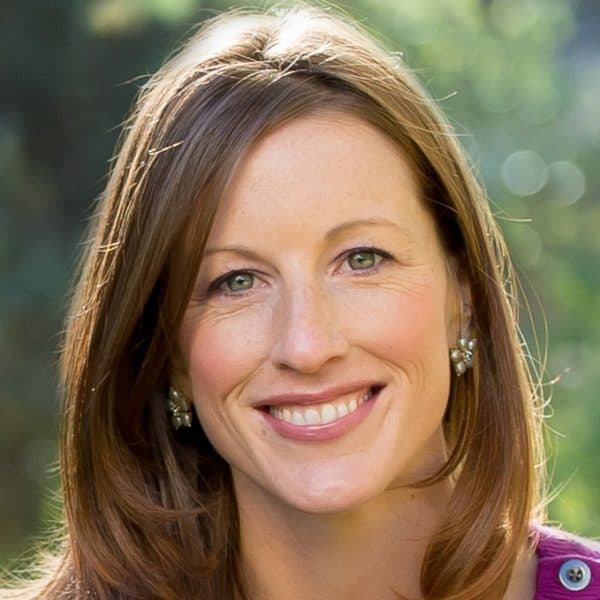Advertisement
Commentary
What To Do With All That Parenting Advice? Whatever You Want

My eldest daughter recently celebrated her 10th birthday. She has grown and matured in so many ways over the last decade. I alternately see her as the tiny infant I tucked into a baby carrier and walked around town with, and the young person she’s become, full of humor and kindness and her own ideas on just about everything.
It’s amazing to me I've been a mom for over a decade. You’d think 10 years of doing something day in and day out would make you feel like an expert, but in my experience, parenting isn’t like that. It still feels pretty new a lot of the time and I often feel unprepared and caught off guard.
One of my favorite, hard-earned lessons in my decade of mothering, is not to worry too much about what other people think I or my children should be doing.
Like all expectant mothers, I got a lot of advice from friends and strangers, oftentimes unsolicited and frequently conflicting: “Get the epidural!”, “Natural childbirth is better”, “Breast is best!”, “Formula is fine!”, “Sleep with the baby in the bed — it’s the only way you will get any rest!”, “Do NOT let the baby sleep in your bed, you will never get her out!”, “Start with baby cereal but wait until four months!”, “Feed her from the table whenever she is ready!” You get my point.
Growing up is still hard, with trophies or without, and so is being a parent.
It never ends. I still get an enormous amount of unsolicited and conflicting advice about my two tweens.
Moreover, there are countless books, newspaper articles, magazines and websites devoted to how to parent children of every age most effectively. Experts talk about helicopter parents versus free-range ones; building resilience, a growth mindset, the dangers of the trophy generation and a lot more.
But to be honest, I’m not sure the basics of parenting have really changed all that much over the years. Growing up is still hard, with trophies or without, and so is being a parent.
Ten years after beginning my motherhood adventure, most of the issues that at one time seemed to be of life-or-death importance are now distant, often fuzzy, memories. Was it my first daughter who used to sleep in our bed all the time or my second? I can’t remember because neither has slept in our bed in such a long time now. I know we used formula, but can’t remember what brand or for how long. All those things that felt like they would never end — the sleepless nights, the long rocking-to-sleep rituals, the painfully early mornings — eventually do just that: they end. And then, as time passes, you forget the details.
[M]ost of the issues that at one time seemed to be of life-or-death importance are now distant, often fuzzy, memories.
If I could go back in time and talk to pregnant me, I’d tell her to take everything with a grain of salt. I’d tell her to keep on reading all those child development books and articles, because some of them really are helpful and have good strategies to survive various difficult stages. But I’d also tell her that, a decade on, most parenting advice reminds me a lot of dieting advice: there’s always some new fad or theory (Gluten-free! Keto! Paleo!) but don’t let the buzzwords distract you.
My favorite parenting advice comes from a book focused on the end of life, “Life Lessons” by Elizabeth Kubler-Ross and David Kessler. In the first chapter of the book, the authors note:
You undoubtedly have faults, but they are not you. You may have a disease, but you are not your diagnosis. You may be rich, but you are not your credit rating. You are not your resume, your neighborhood, your grades, your mistakes, your body, your roles or titles. All these things are not you, because they are changeable. There is a part of you that is indefinable and changeless, that does not get lost with age, disease, or circumstances. There is an authenticity you were born with, have lived with and will die with … This is the key lesson of life: to find our own authentic selves, and to see the authenticity in others.
I’d tell my pregnant self not to worry too much about “milestones.” Instead, I’d tell her to focus on those “indefinable and changeless” parts of herself, because those are the things that will make her the mom she’s meant to be. And to look for those parts of her children too — and right away. Even in the first weeks and months, you’ll begin to see things in your babies that are completely unique to them and always will be. Tune out the ceaseless external noise and zero in on those authentic parts.
The daily worries and preoccupations of motherhood are different for me now than they were when I first became a mom, but whether your baby is six months old, or 10, or 20, the underlying mission is the same: to honor the authenticity of these unique beings who come into our lives — to love them, nurture them and listen to them, each and every day to the best of our ability.
